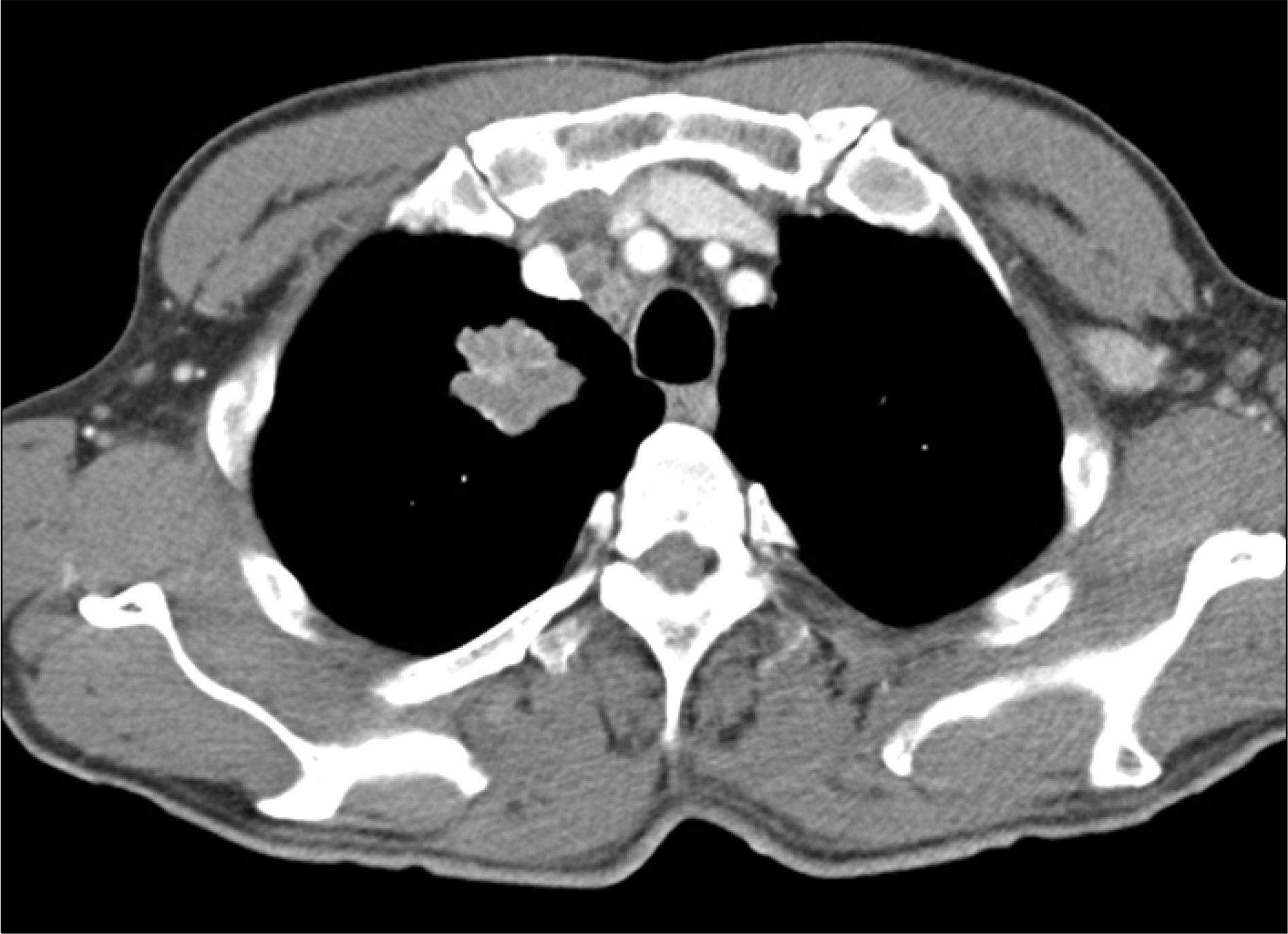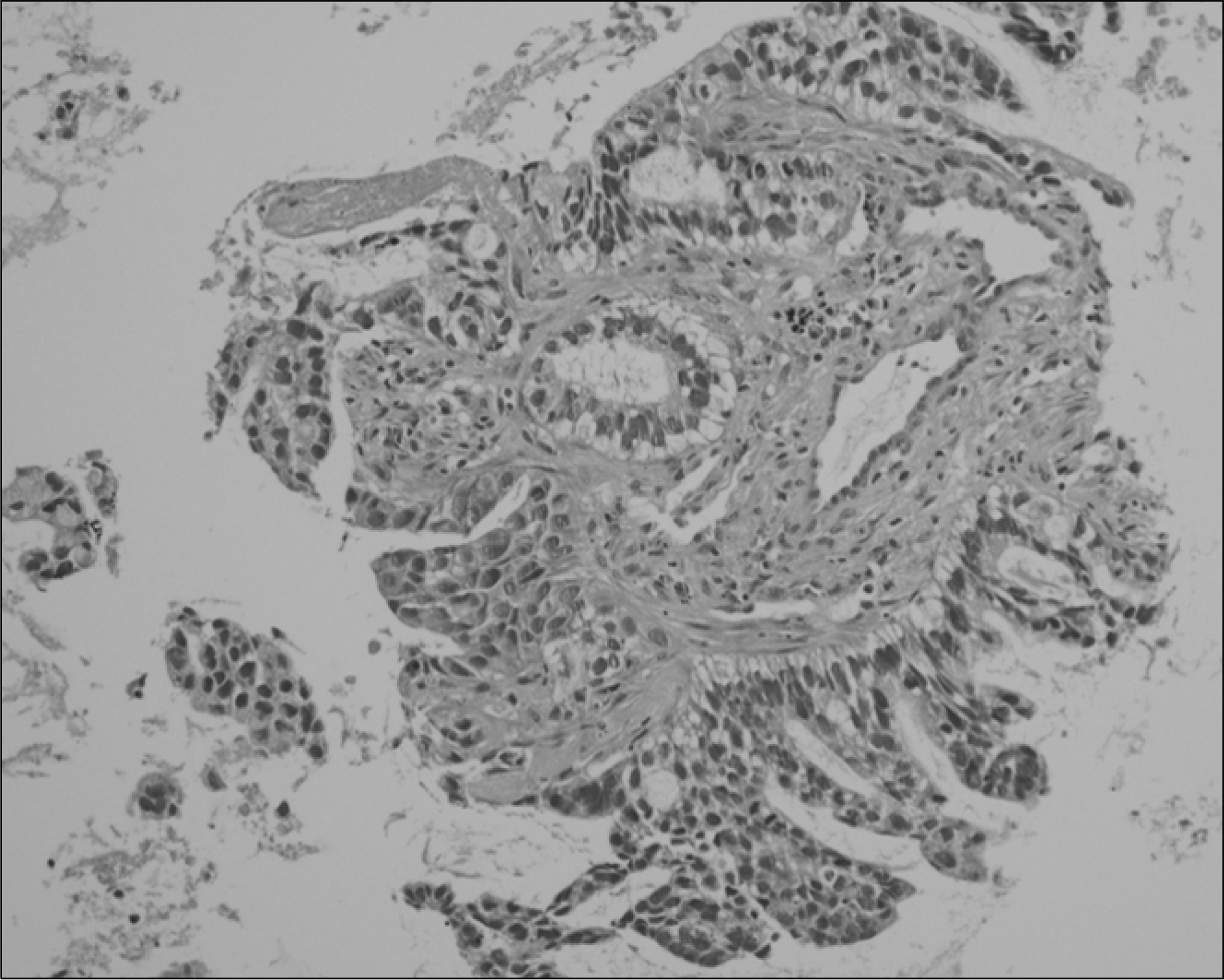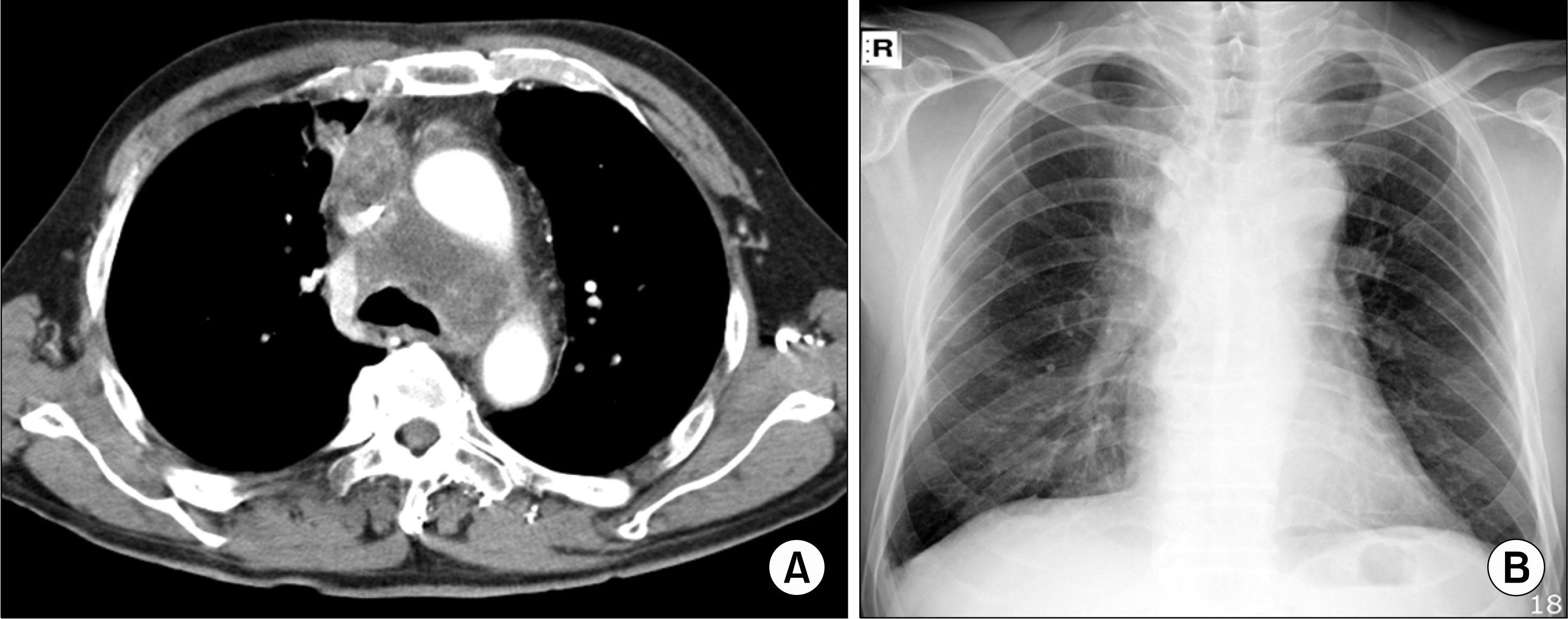J Lung Cancer.
2010 Dec;9(2):106-109. 10.6058/jlc.2010.9.2.106.
Tumor Lysis Syndrome Induced by Radiotherapy in Non-Small Cell Lung Cancer
- Affiliations
-
- 1Department of Internal Medicine, Institute of Wonkwang Medical Science, Wonkwang University School of Medicine, Iksan, Korea. kshryj@wonkwang.ac.kr
- 2Department of Pathology, Institute of Wonkwang Medical Science, Wonkwang University School of Medicine, Iksan, Korea.
- 3Department of Radiology, Institute of Wonkwang Medical Science, Wonkwang University School of Medicine, Iksan, Korea.
- KMID: 2199919
- DOI: http://doi.org/10.6058/jlc.2010.9.2.106
Abstract
- Tumor lysis syndrome (TLS) is an oncologic emergency that is characterized by numerous metabolic abnormalities, including hyperuricemic nephropathy, hyperphosphatemia, hypocalcemia, hyperkalemia and increased serum creatinine. This syndrome is common for tumors with rapid cell turnover and growth rates, and for bulky tumors with high sensitivity to anti-neoplastic treatments. Hence, TLS is a well-recognized clinical problem in hematologic malignancies. TLS is rarely observed to be induced in solid tumors by chemotherapy. Herein we present the second case of TLS that developed during radiotherapy in a patient with non-small cell lung cancer.
MeSH Terms
Figure
Reference
-
References
1. Arrambide K, Toto RD. Tumor lysis syndrome. Semin Nephrol. 1993; 13:273–280.2. Cohen LF, Balow JE, Magrath IT, Poplack DG, Ziegler JL. Acute tumor lysis syndrome: a review of 37 patients with Burkitt's lymphoma. Am J Med. 1980; 68:486–491.3. Brereton HD, Anderson T, Johnson RE, Schein PS. Hyperphosphatemia and hypocalcemia in Burkitt lymophoma: complications of chemotherapy. Arch Intern Med. 1975; 135:307–309.
Article4. Drakos P, Bar-Ziv J, Catane R. Tumor lysis syndrome in nonhematologic malignancies: report of a case and review of the literature. Am J Clin Oncol. 1994; 17:502–505.5. Kjellstrand CM, Cambell DC 2nd, von Hartitzsch B, Buselmeier TJ. Hyperuricemic acute renal failure. Arch Intern Med. 1974; 133:349–359.
Article6. Hande KR, Garrow GC. Acute tumor lysis syndrome in patients with high-grade non-Hodgkin's lymphoma. Am J Med. 1993; 94:133–139.
Article7. Baeksgaard L, Sø rensen JB. Acute tumor lysis syndrome in solid tumors: a case report and review of the literature. Cancer Chemother Pharmacol. 2003; 51:187–192.8. Crittenden DR, Ackerman GL. Hyperuricemic acute renal failure in disseminated carcinoma. Arch Intern Med. 1977; 137:97–99.
Article9. Gemici C. Tumour lysis syndrome in solid tumours. Clin Oncol (R Coll Radiol). 2006; 18:773–780.
Article10. Noh GY, Choe DH, Kim CH, Lee JC. Fatal tumor lysis syndrome during radiotherapy for nonsmall-cell lung cancer. J Clin Oncol. 2008; 26:6005–6006.
Article11. Mott FE, Esana A, Chakmakjian C, Herrington JD. Tumor lysis syndrome in solid tumors. Support Cancer Ther. 2005; 2:188–191.
Article12. Coiffier B, Altman A, Pui CH, Younes A, Cairo MS. Guidelines for the management of pediatric and adult tumor lysis syndrome: an evidence-based review. J Clin Oncol. 2008; 26:2767–2778.
Article13. Yuh YJ, Kim SR. Lactate dehydrogenase (LDH) as a tumor marker for nonsmall cell lung cancer. Cancer Res Treat. 2002; 34:339–344.
- Full Text Links
- Actions
-
Cited
- CITED
-
- Close
- Share
- Similar articles
-
- Fatal Tumor Lysis Syndrome During Chemotherapy in Small Cell Lung Cancer
- A Case of Gefitinib (Iressa(R))-associated Tumor Lysis Syndrome in Adenocarcinoma of the Lung
- Tumor Lysis Syndrome in Lymphoblastic Crisis of CML
- Definitive Radiotherapy of Non-Small Cell Lung Cancer
- Total necrosis of small cell lung carcinoma after combination chemotherapy and radiotherapy: one case report-




